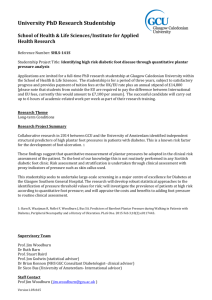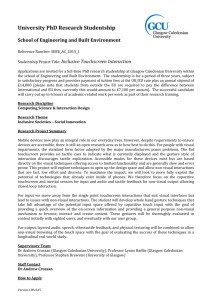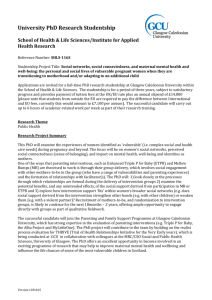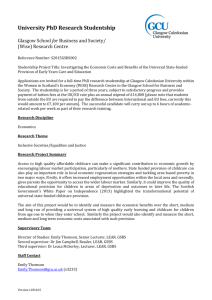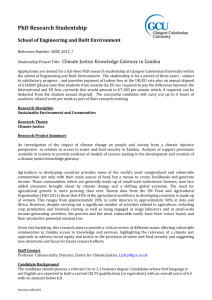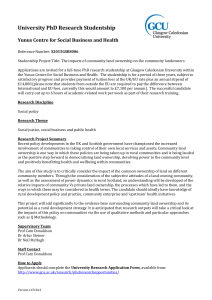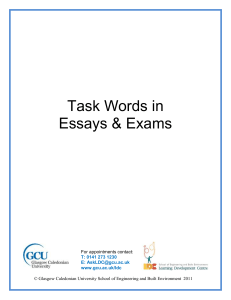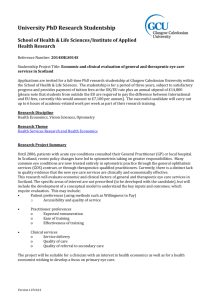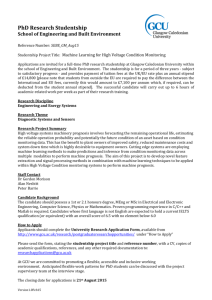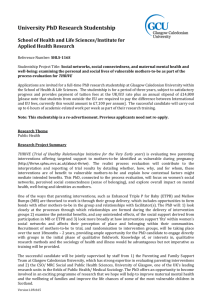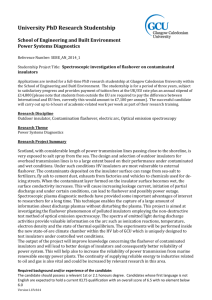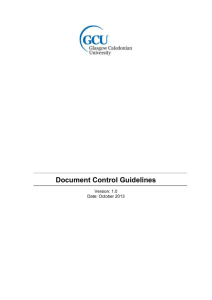PhD Research Studentships - Glasgow Caledonian University
advertisement
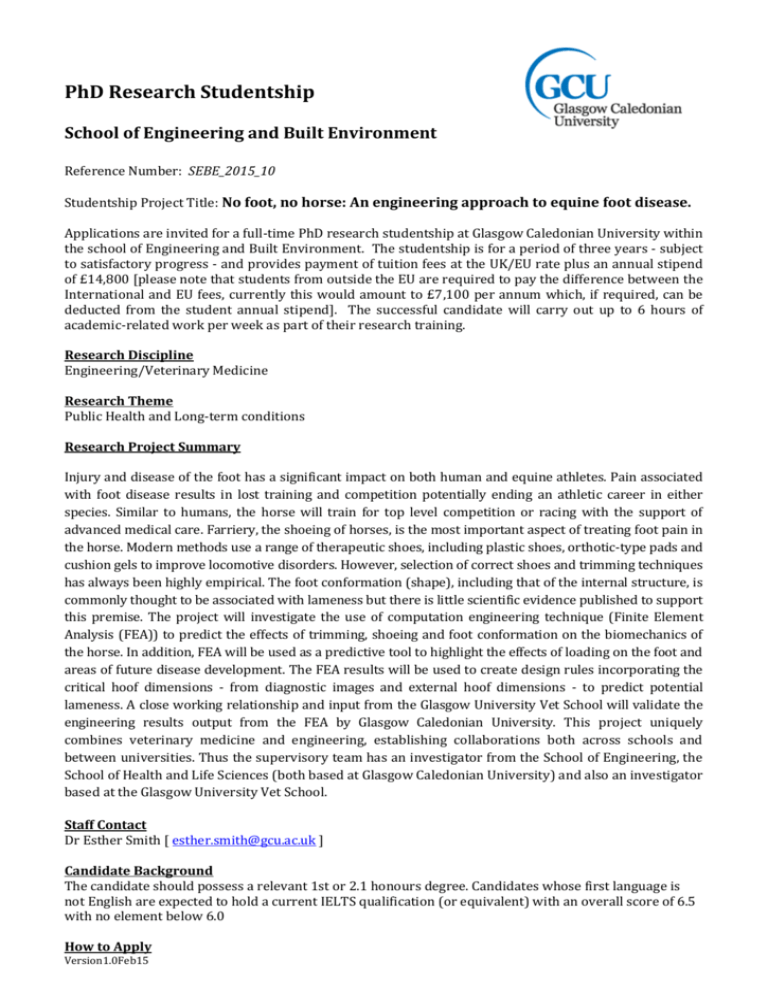
PhD Research Studentship School of Engineering and Built Environment Reference Number: SEBE_2015_10 Studentship Project Title: No foot, no horse: An engineering approach to equine foot disease. Applications are invited for a full-time PhD research studentship at Glasgow Caledonian University within the school of Engineering and Built Environment. The studentship is for a period of three years - subject to satisfactory progress - and provides payment of tuition fees at the UK/EU rate plus an annual stipend of £14,800 [please note that students from outside the EU are required to pay the difference between the International and EU fees, currently this would amount to £7,100 per annum which, if required, can be deducted from the student annual stipend]. The successful candidate will carry out up to 6 hours of academic-related work per week as part of their research training. Research Discipline Engineering/Veterinary Medicine Research Theme Public Health and Long-term conditions Research Project Summary Injury and disease of the foot has a significant impact on both human and equine athletes. Pain associated with foot disease results in lost training and competition potentially ending an athletic career in either species. Similar to humans, the horse will train for top level competition or racing with the support of advanced medical care. Farriery, the shoeing of horses, is the most important aspect of treating foot pain in the horse. Modern methods use a range of therapeutic shoes, including plastic shoes, orthotic-type pads and cushion gels to improve locomotive disorders. However, selection of correct shoes and trimming techniques has always been highly empirical. The foot conformation (shape), including that of the internal structure, is commonly thought to be associated with lameness but there is little scientific evidence published to support this premise. The project will investigate the use of computation engineering technique (Finite Element Analysis (FEA)) to predict the effects of trimming, shoeing and foot conformation on the biomechanics of the horse. In addition, FEA will be used as a predictive tool to highlight the effects of loading on the foot and areas of future disease development. The FEA results will be used to create design rules incorporating the critical hoof dimensions - from diagnostic images and external hoof dimensions - to predict potential lameness. A close working relationship and input from the Glasgow University Vet School will validate the engineering results output from the FEA by Glasgow Caledonian University. This project uniquely combines veterinary medicine and engineering, establishing collaborations both across schools and between universities. Thus the supervisory team has an investigator from the School of Engineering, the School of Health and Life Sciences (both based at Glasgow Caledonian University) and also an investigator based at the Glasgow University Vet School. Staff Contact Dr Esther Smith [ esther.smith@gcu.ac.uk ] Candidate Background The candidate should possess a relevant 1st or 2.1 honours degree. Candidates whose first language is not English are expected to hold a current IELTS qualification (or equivalent) with an overall score of 6.5 with no element below 6.0 How to Apply Version1.0Feb15 Applicants should complete the University Research Application Form, available from http://www.gcu.ac.uk/research/postgraduateresearchopportunities/ under “How to Apply” Please send the form, stating the studentship project title and reference number, with a CV, copies of academic qualifications, references, and any other required documentation to: researchapplications@gcu.ac.uk At GCU we are committed to promoting a flexible, accessible and inclusive working environment. Anticipated flexible work patterns for PhD students can be discussed with the project supervisory team at the interview stage. The closing date for applications is 22nd May 2015 Version1.0Feb15
